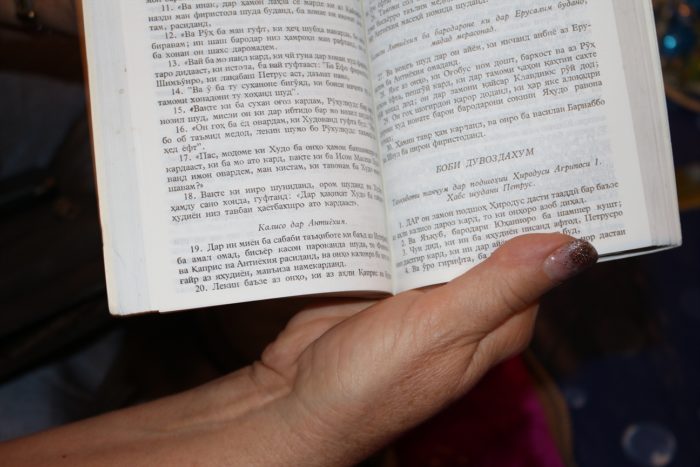
A court in northern Kazakhstan has given a Baptist man a one-year suspended prison sentence for refusing to pay fines for the state to give its “expert analysis” of Christian books he had with him at the time of his arrest.
Yuri Bekker had also failed to pay outstanding fines for distributing religious literature, reports Forum 18.
He was convicted on 31 October at a district court in the northern region of Akmola, which also encompasses the country’s capital, Astana.
Yuri Rudenko of the Council of Baptist Churches said Bekker’s case was the first time a Baptist had been convicted under Criminal Code Article 430.
Bekker has been ordered to pay the outstanding fines and “expert” fee. He has also been banned from moving house or visiting public places such as restaurants, while he has to notify the authorities about his place of work. If he fails to pay by the end of 2017, he will spend the remaining part of his sentence in prison. The court also froze his rights to his house, which will be confiscated if he does not pay.
Bekker told Forum 18 he had refused to pay as “I did not violate the law and I did not ask the state to carry out an ‘expert analysis’ of my Christian books”.
Rudenko told Forum18 Bekker had explained to the courts “he would not pay the fines or the state fee as he only peacefully exercised his faith, which … is guaranteed by the Constitution”.
Bekker and another Baptist were first arrested in September 2015 for offering religious literature to people at a market in Arkalyk, in the region of Kostanai, west of Akmola. According to Forum 18 both men were fined 74,235 Tenge (approximately US$221), “with each also having to pay half the cost of a September 2015 ‘expert analysis’ of confiscated Christian literature”. Bekker was later given another fine (approximately US$63) for failing “to fulfil a court decision”.
UN calls for prisoner’s release
Meanwhile the UN Working Group on Arbitrary Detention has called for the “immediate” release of Teymur Akhmedov, a Jehovah’s Witness prisoner of conscience.
The UN Working Group, which was established under the Human Rights Council, also called for him to be “compensated” because, it said, his “arbitrary” arrest and detention contravened both the Universal Declaration of Human Rights and the International Covenant on Civil and Political Rights.
Akhmedov, a 61-year-old bus driver who has cancer, was sentenced on 2 May by the court in Astana to five years’ imprisonment for talking about his faith. As a Jehovah’s Witness he met with seven young men who claimed to be students but turned out to be secret police informers. He has also been banned from conducting “ideological/preaching activity in the area of religion” for three years after the end of his sentence.
According to Forum18 Akhmedov “was held in pre-trial detention from 18 January, where he was tortured with beatings. Officials have repeatedly refused to allow him to be treated in hospital for the cancer he is suffering from, and to read religious literature”.
Charges were also brought against Akhmedov’s lawyers for “revealing information from a pre-trial investigation” but were revoked after his sentencing.
Akhmedov’s appeal with the Supreme Court is pending and a date for the hearing has not yet been set.
Tighter control
Kazakhstan is in the process of amending its religion laws to further tighten restrictions on religious freedom. Under the amendments, parents would have to give permission for children under 16 to attend religious services, and also accompany that child. The bill could reach parliament for ratification as early as December.
It is expected the final version of the law will also allow for tighter state censorship of religious literature and higher fines for offenders.
Christians and other religious communities already face severe restrictions. In September a Protestant church was ordered to stop meeting because they had sung religious songs at a summer camp. As it was a first-time offence, the state could only punish the church with a three-month ban, but the amended law will allow fixed fines to be imposed at the first offence rather than the second.
Kazakhstan’s clampdown on religious freedom over the past few years has seen churches frequently raided and property seized. Meanwhile in July the Supreme Court forced the Jehovah’s Witnesses to suspend operations in the country.
Kazakhstan is 43rd on the World Watch List of the 50 countries where it is most difficult to live as a Christian.